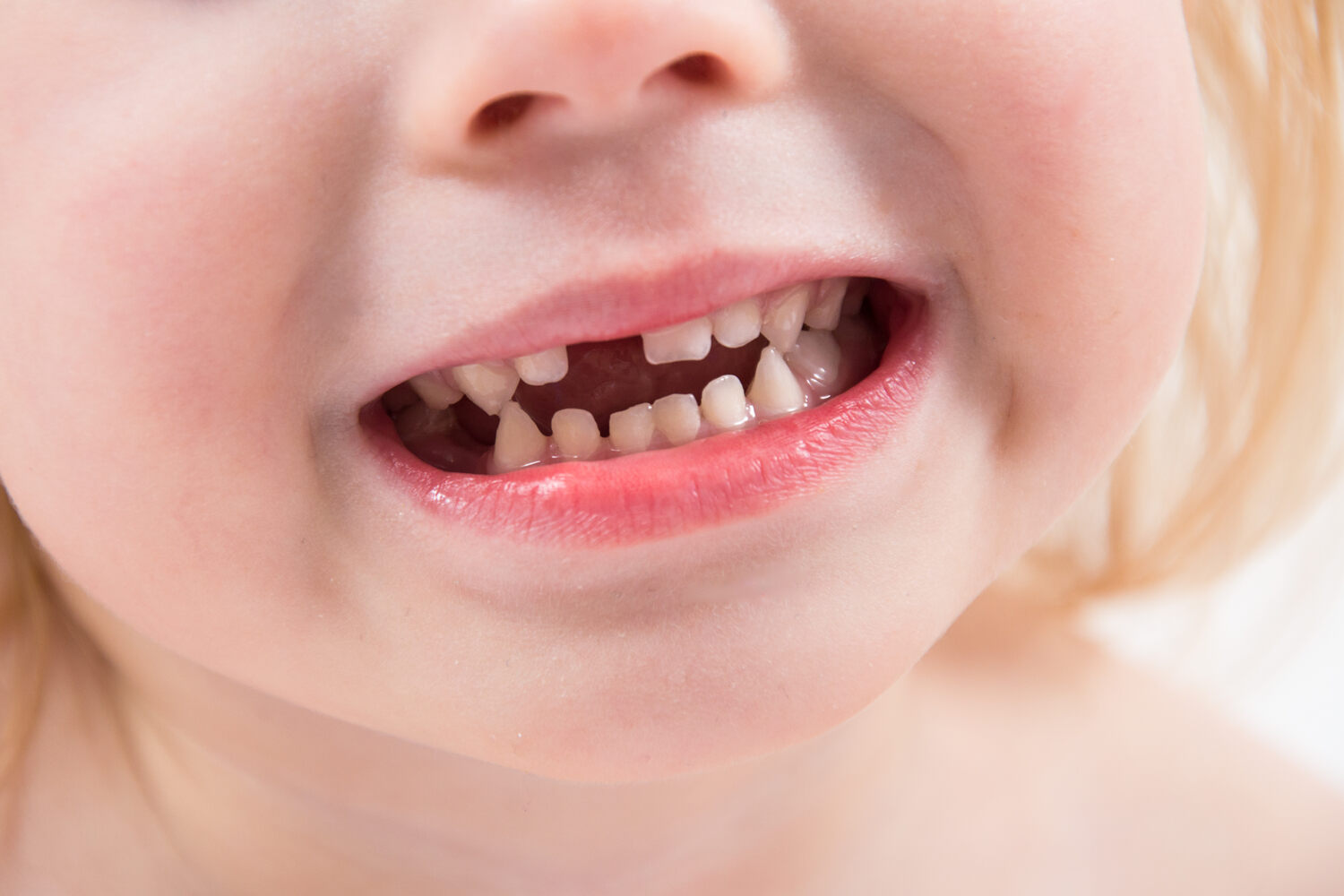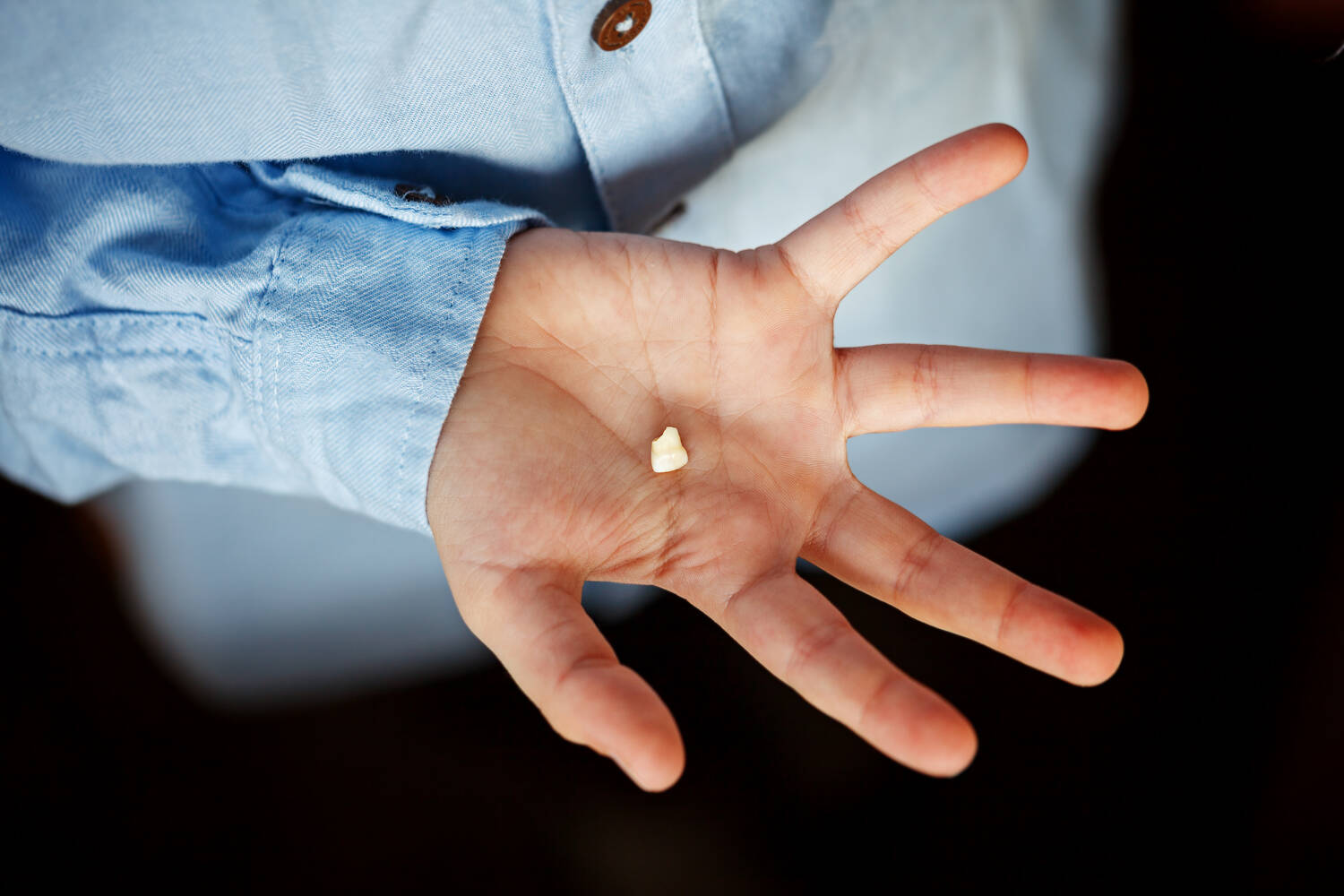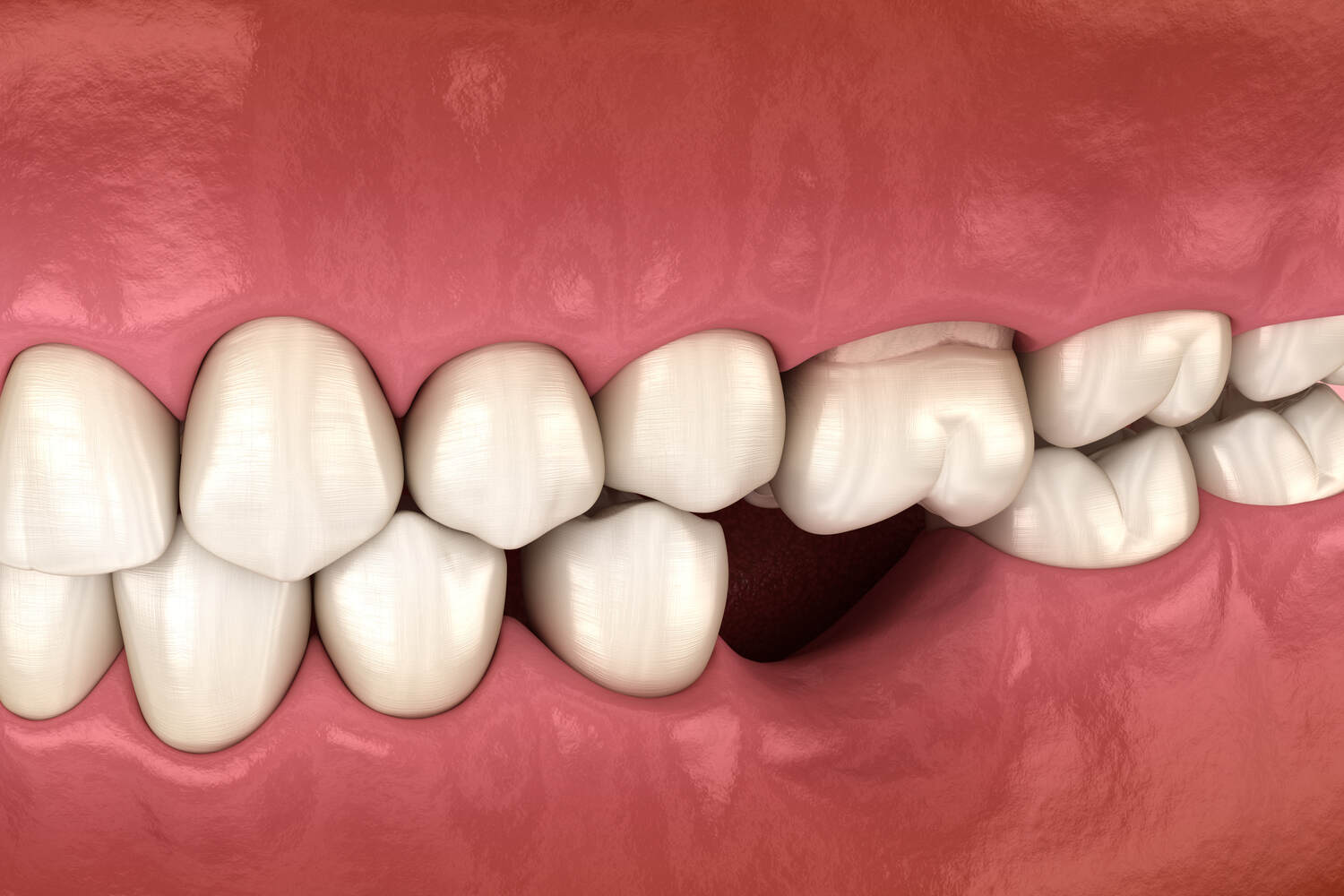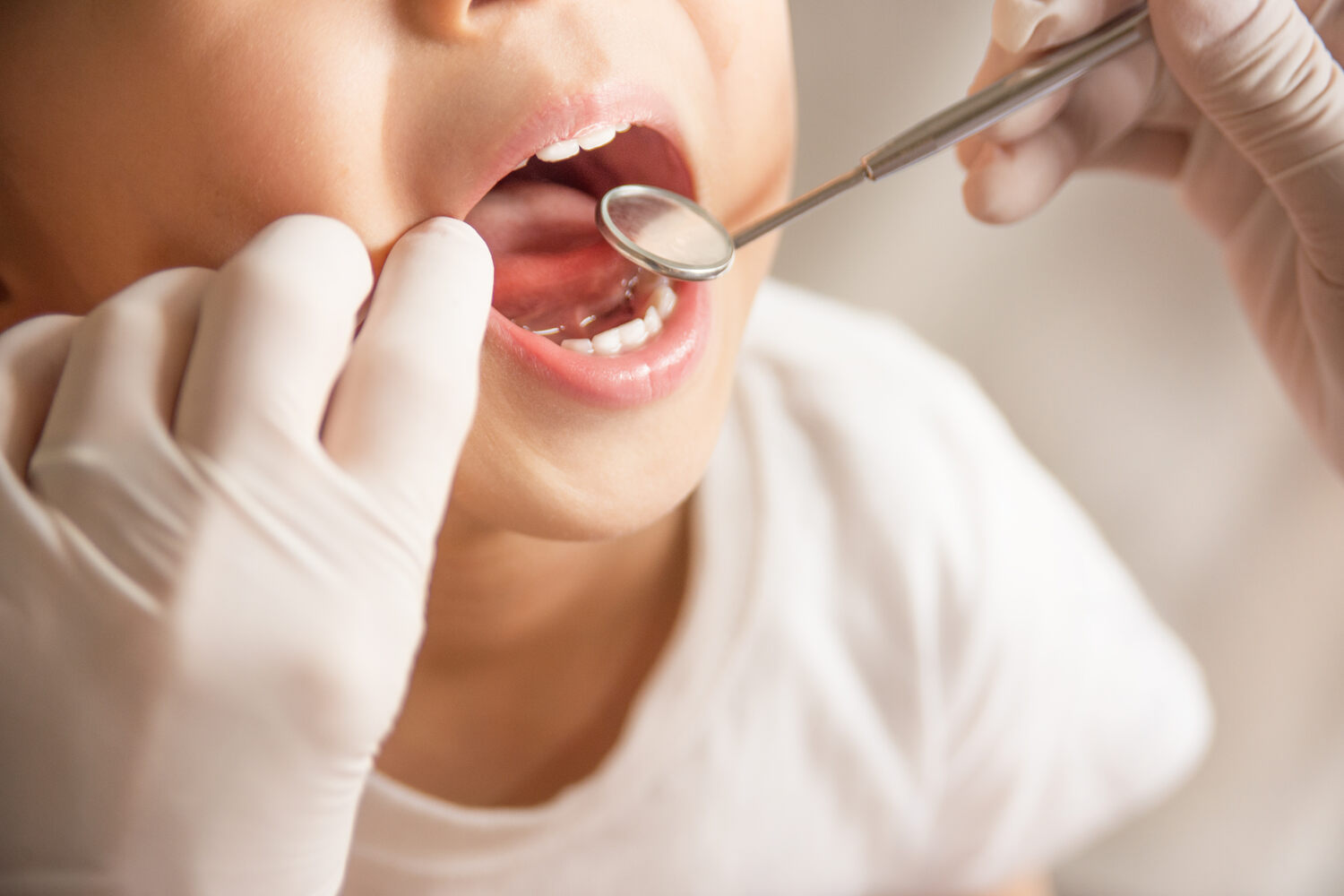
Tooth exfoliation is a normal physiological process where the baby teeth shed paving the way for permanent teeth. Also known as milk or primary teeth, baby teeth serve important functions like chewing and proper speech. They also play a vital role as placeholders for the adult or permanent teeth. According to the American Dental Association (ADA), children typically lose their first baby teeth around 6 or 7 years old (1). The first time your child loses their baby teeth can be an exciting milestone.
But what if your child loses their baby teeth early? Losing baby teeth even before your child’s permanent teeth erupt may require special dental care. Here is what you must know about premature or early loss of baby teeth, and what you can do about it!
In This Article
- What is Considered as Early Loss of Baby Teeth in Kids?
- At What Age do Kids Start Losing Their Baby Teeth?
- Reasons For Early Loss of Baby Teeth in Children
- What Happens When a Kid Loses Baby Teeth Too Soon?
- When Should You Consider Seeing a Doctor?
- FAQ’s
What is Considered as Early Loss of Baby Teeth in Kids?
Baby teeth exfoliate to create a space in which the permanent teeth erupt. This is a normal physiological process occurring in every child. Typically a child loses their first baby teeth around six years of age. However, if your child loses a baby tooth significantly earlier than age six, or has a baby tooth knocked out, it is considered an early loss of baby teeth.
At What Age do Kids Start Losing Their Baby Teeth?
Kids typically begin losing their baby teeth around six or seven years of age. They continue to lose teeth until ages 11 to 13. The mandibular central incisors (lower center teeth) are the first teeth to fall out since they are the first to erupt as well. However, this may vary from child to child. Early loss of baby teeth could be due to several reasons that have been discussed further in the article.
Reasons For Early Loss of Baby Teeth in Children

Various reasons can cause early loss of baby teeth in kids (2a), including-
- Severe tooth decay may necessitate the removal of an extensively damaged baby tooth before it naturally falls off
- Dental trauma due to an injury or accident
- Periodontitis (an advanced stage of gum disease) weakens the gums and bone tissues supporting the tooth due to loss of attachment and tooth mobility
- Certain medical conditions cause early loss of baby teeth such as cancer, Papillon-Lefevre syndrome, hypophosphatasia, neutropenia, and leukemia (3)
- Congenital (from birth) missing teeth, when a tooth has never grown in the affected area
What Happens When a Kid Loses Baby Teeth Too Soon?

When a kid loses baby teeth too soon, there are a variety of dental issues that can arise. These include-
Shifting of Teeth
- Loss of a tooth can leave a space or gap in between the remaining teeth
- The other teeth can gradually shift into the open space
- This often leads to crowding of teeth and disruption in the natural shedding of the other teeth
Crowding
- The teeth may drift into the open space created by early tooth loss resulting in poor arch length (4)
- This will eventually prevent the erupting permanent tooth from having enough space to come in properly
Poor Oral Health
Drifting of the teeth and crowding can make the teeth inaccessible to regular brushing and flossing
Misaligned teeth may also increase the child’s risk of developing tooth decay, periodontal disease, and TMJ (Temporomandibular joint) disorder. This can greatly impact your child’s oral health
Compromised Oral Function
- Malocclusion resulting from drifting and crowding of the remaining teeth can affect the child’s phonation, causing speech problems (2b)
- Early tooth loss can also negatively impact your child’s chewing abilities
Damage to Permanent Teeth
- The permanent tooth bud may be damaged under the gums resulting in their abnormal rotation or impaction (2c)
- The impact of the drifted teeth can further harm the permanent tooth (5)
Unaesthetic Smile
- Missing teeth can leave an unappealing gap, often leading to an unaesthetic smile
- This can lead to a lack of confidence and low self-esteem in your kid (2d)
When Should You Consider Seeing a Doctor?

If your child loses their baby teeth early, then it is time to consider visiting a pediatric dentist. They will have the expertise to determine the further course of action. The pediatric dentist will evaluate your child’s mouth and advise dental-rays. Radiographs help detect the exact location of the permanent teeth, and rule out other dental diseases or underlying medical conditions.
If the permanent tooth is almost on the verge of eruption, your child may not require any dental procedure. However, if the permanent tooth is not ready to come in for a while, your child may require special dental care. This is necessary to maintain space and hold the spot open. The dentist may recommend space maintainers for your child to help retain the space for the permanent teeth to erupt in a proper position in the future (6). Younger kids are often given a fixed space maintainer, while older kids may use removable appliances.
Children usually lose their baby teeth around six to seven years of age. They continue losing teeth until they reach 12 years of age. However, when they lose baby teeth before the normal age it is a great cause of concern. Seek dental care as soon as possible if your child loses baby teeth early. Your child’s pediatric dentist may evaluate and determine the cause of early loss, and further course of action.
FAQ’s
1. What Causes Premature Tooth Loss in Children?
Premature or early tooth loss in children is a condition where the child loses baby teeth even before they reach six or seven years of age. This is often caused by tooth decay (early childhood caries), dental trauma, or periodontal disease, or it can be a manifestation of any disorder or syndrome.
2. Can Loose Baby Teeth Tighten Backup?
Yes, your baby’s loose teeth can tighten back after they get hit in the mouth or suffer from any other trauma. This is possible only if your child has a healthy oral cavity. After an injury or dental trauma, the gums may tighten back around the crown of the affected tooth, and the root can become stable again.
3. What Happens if You Lose Baby Tooth Too Soon?
When your child loses baby teeth too soon, the adjacent teeth often drift or shift toward the open space created by the missing tooth. This can result in crowding of the child’s teeth leading to misalignment. Misaligned teeth can compromise their oral health due to inaccessibility to brush or floss the teeth. Furthermore, the baby teeth act as natural placeholders for permanent teeth. Early loss of baby teeth can lead to the eruption of the permanent teeth in the wrong place resulting in crowding and bite problems.
4. Is it Normal to Lose Baby Teeth at 5?
Your child can lose a baby tooth around 5 years of age which may be normal. This is because every child is different. Generally, children lose baby teeth around 6 years of age. But some may lose them as early as 5 years or as late as 7 years as well.
5. Why Has my 4-Year-Old Lost a Tooth?
Children may lose baby teeth at 4 years of age, though it is not normal. Baby teeth are usually shed at around 5 to 6 years of age. Losing baby teeth as early as 4 years may be due to early childhood caries, dental trauma, or periodontal disease. Sometimes it may also be a manifestation of an underlying medical condition.
6. Is it Normal For a 7-Year-Old to Lose a Molar?
No, it is not normal for a 7-year-old to lose a molar. Typically kids lose their molars around 9 to 11 years of age. Consult a pediatric dentist right away if your child loses their primary molars at 7 years.
7. Is it Better to Lose Baby Teeth Early or Late?
It is always better to lose baby teeth late than to lose them early. Losing baby teeth too early can cause the drifting of the adjacent teeth into the missing teeth space resulting in crowding, and poor oral health. Baby teeth act as natural space maintainers (placeholders) for permanent teeth to erupt in the correct position. Early loss of baby teeth can lead to eruption of the permanent teeth abnormally leading to misalignment and bite problems.
References
- Anatomy, Head and Neck, Primary Dentition – [https://www.ncbi.nlm.nih.gov/books/NBK573074/]
- Premature Loss of Deciduous Teeth as a Symptom of Systemic Disease: A Narrative Literature Review – [https://www.ncbi.nlm.nih.gov/pmc/articles/PMC8953685/]
- Premature loss of primary teeth with gingival erythema: An alert to dentist – [https://www.ncbi.nlm.nih.gov/pmc/articles/PMC4611952/]
- Prevalence of prematurely lost primary teeth in 5–10-year-old children in Thamar city, Yemen: A cross-sectional study – [https://www.ncbi.nlm.nih.gov/pmc/articles/PMC5022389/]
- Frequency and distribution of early tooth loss and endodontic treatment needs of permanent first molars in a Turkish pediatric population – [https://www.ncbi.nlm.nih.gov/pmc/articles/PMC4054089/]
- Space Maintainers in Dentistry: Past to Present – [https://www.ncbi.nlm.nih.gov/pmc/articles/PMC3843386/]
